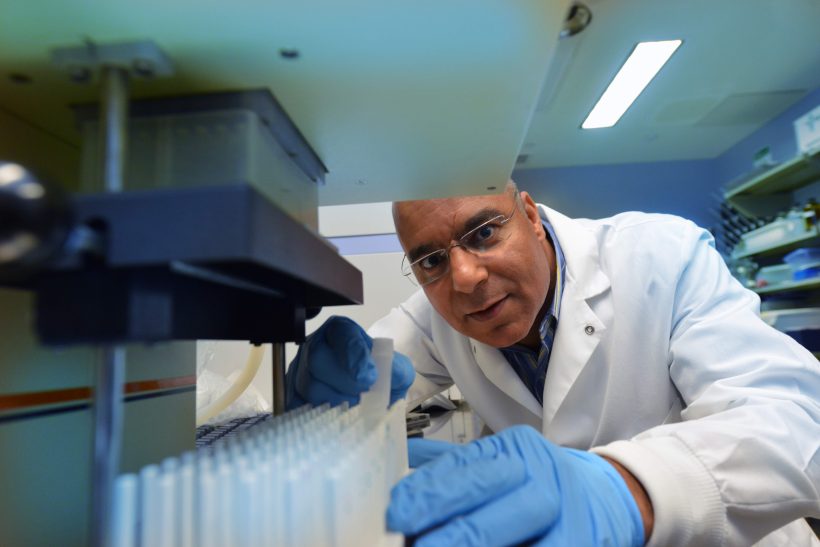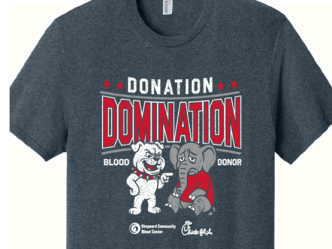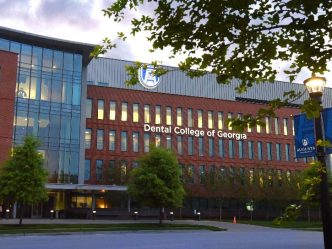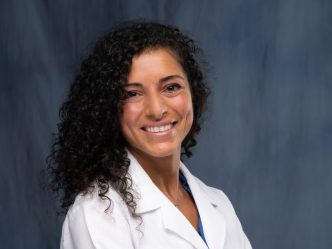Ahmed Chadli, PhD, an associate professor of Biochemistry and Molecular Biology and Graduate Studies at Augusta University’s Medical College of Georgia and the Georgia Cancer Center, has been awarded a $2.8 million grant from the National Cancer Institute.
“We are honored and humbled to be trusted by the NCI to further develop this project that has been central to our lab for many years. Without this grant, we can’t take this promising project to the next level,” Chadli said.
The grant awarded for Chadli’s research focuses on a specific protein, UNC45A, that can be used as a promising novel immunotherapeutic target in treating triple-negative breast cancer (TNBC). He and his research team hypothesize that, by inhibiting this protein, it will help activate the immune system to eliminate tumors. They also believe that combining this inhibition with radiation therapy will efficiently reduce the TNBC burden.
Chadli’s lab focuses on understanding the biology of cancer, specifically breast cancer, and developing novel drugs against TNBC, a highly aggressive cancer. TNBC presents a unique challenge to treat as it does not express estrogen or progesterone receptors, nor does it make a lot of the HER2 protein, which renders treatments that target these proteins useless.
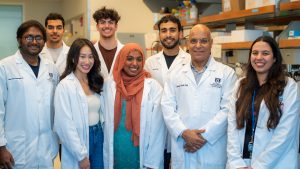
“We believe this protein is an exciting alternative target to develop more efficient treatment of breast cancer,” Chadli said.
Chadli started this research nearly 22 years ago when he was a postdoctoral fellow at the Mayo Clinic in Rochester, Minnesota. Over the years he has dissected the biochemical and cell biological functions of the UNC45A protein.
More recently he has genetically engineered sophisticated tools that have allowed testing the impact of inhibiting this protein. The data used to support this application have established the key role of UNC45A in promoting tumor growth and how inhibiting this protein eliminates tumors through the reactivation of the immune system to recognize them.
Preliminary research work was supported by a grant through Paceline that Chadli was awarded in 2023.
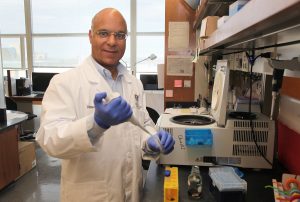
The next step for him and his team is to identify small molecules or antibodies that will assist them in inhibiting the protein in humans. Chadli’s research team is working hard to establish a platform for high-throughput screening of compound inhibitors of UNC45A and other molecular chaperones to treat TNBC. In the next five to 10 years, he hopes to have the project in the clinical trials stage.
“The impact of this work on human health will be, we hope and believe, very significant.”
 Augusta University
Augusta University
